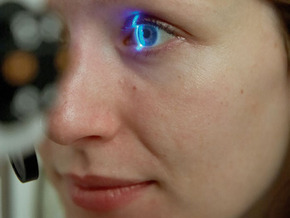January is Glaucoma Awareness Month
You could have glaucoma and not even know it.
Three Reasons You Should Talk About Glaucoma
1. Weddings
2. Graduations
3. Grandchildren
Don’t miss out on seeing life’s precious moments. You know that every family wedding includes your Uncle Louis teaching the latest line dance. And every spring, Aunt Shirley pulls you into the kitchen to help bake a few cherry pies. Make sure you can stay in the mix by protecting your vision.
Keep an eye out for glaucoma.
The National Eye Institute encourages you to save your sight from vision loss and blindness by knowing your risk for glaucoma – and doing something about it! Glaucoma is a group of diseases that damages the eye’s optic nerve. It can lead to vision loss or blindness if left untreated. More than half of all people with glaucoma don’t know they have it. And, quite often, by the time people are diagnosed with glaucoma, they have already begun to notice changes in their side, or peripheral, vision.
This is especially true for African Americans – those over age 40 and those with a family history of glaucoma are at higher risk for the disease. More than 520,000 African Americans have glaucoma, and this number is expected to increase by more than 300,000 over the next 15 years. The disease is a leading cause of blindness among African Americans.
Don’t just talk the talk.
Do something about glaucoma. Talking about it is the first step. The second step is to see your eye care professional and get a comprehensive dilated eye exam every one to two years if you are at higher risk. Don’t wait until you notice vision problems to see your eye care professional.
January is Glaucoma Awareness Month. It’s time to talk about eye health. To learn more about how you can protect your sight, visit www.nei.nih.gov/glaucoma.
The National Eye Institute (NEI) leads the federal government’s research on the visual system and eye diseases. NEI supports basic and clinical science programs to develop sight-saving treatments and address the special needs of people with vision loss. For more information, visit www.nei.nig.gov.


